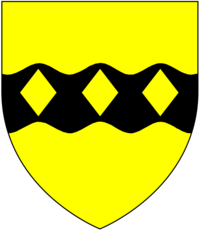
Arthur Duck (1580 – 16 December 1648), Doctor of Civil Law (LL.D.) [2] was an English lawyer, author and Member of Parliament.

Arthur Duck (1580 – 16 December 1648), Doctor of Civil Law (LL.D.) [2] was an English lawyer, author and Member of Parliament.
Duck was born at Heavitree, near Exeter, Devon. the younger son of Richard Duck and his wife Joanna. His elder brother was the lawyer Nicholas Duck (1570-1628). [3]
Duck was educated at Exeter College, Oxford (B.A., 1599) and Hart Hall, Oxford (M.A., 1602), and was elected a fellow of All Souls in 1604. In 1612 he was made a Doctor of Laws (LL.D.), and in 1614 was admitted as an Advocate of Doctor's Commons. As a jurist Duck was a pupil of John Budden. [4]
In 1624, Duck became a Member of Parliament for Minehead, Somerset. [5] and again in the Short Parliament of 1640. [6]
Duck was associated with the future Archbishop Laud for some years. Duck wrote an opinion that a statute drafted by Laud for Wadham College, Oxford, was not ultra vires is mentioned in the Calendar of State Papers in 1625–6. Duck became Chancellor of the Diocese of London at about the time Laud was translated to the bishopric in 1628; by 1633 Duck is recorded as pleading a case for Laud before the King and Council on appeal from the Dean of Arches. Also in 1633, he was placed on the Ecclesiastical Commission. Duck later became Chancellor of Bath and Wells in 1635, and held numerous other ecclesiastical and administrative posts. In 1639 he prosecuted a case against a false display of heraldry at a funeral of a wealth benefactor of Christ's Hospital. [7]
In 1641, Duck unsuccessfully contested the appointment of Sir William Meyrick as judge of the prerogative court of Canterbury. [8] He was appointed a Master of Requests by Charles I at Oxford in 1643 [9] and Master in Chancery in 1645. In 1648 Charles I, then a prisoner of Parliament, requested that Parliament allow him Duck's help in negotiating a settlement to the Civil War. It is not known if Parliament granted this request.
Duck acquired the prebendal manor of Chiswick in Middlesex, held under a lease from St Paul's Cathedral in London. . [10] The Dictionary of National Biography records that Duck died in Chelsea in December 1648, and was buried at Chiswick in May 1649. However, Foss lists him as still a Master of Chancery from 1649 to 1650.
Duck wrote the following works: [11]
According to one commentator, the Chichele biography was anti-papalist and negative about the foundations of canon law. The De Usu took a line on the "ancient constitution" that was hostile to royal authority. [14] It raised the general historical question of how law had evolved differently in different states. Pietro Giannone considered this point in relation to the Kingdom of Naples and Kingdom of Sicily. [15]
Duck was married at Cathedral Church of Saint Andrew by Bishop Lake to Margaret Southworth, daughter of Henry Southworth, merchant, of London and Wells. [16] The couple had two daughters, according to the biographer John Prince, (1643–1723): [17]

Honiton was a parliamentary constituency centred on the town of Honiton in east Devon, formerly represented in the House of Commons of the Parliament of the United Kingdom. It sent members intermittently from 1300, consistently from 1640. It elected two Members of Parliament (MPs) until it was abolished in 1868. It was recreated in 1885 as a single-member constituency.
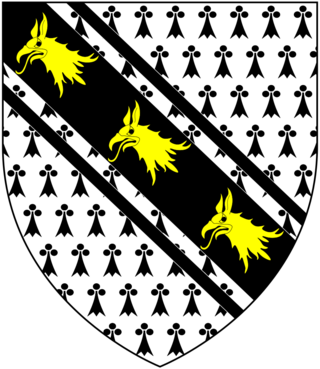
Walter Yonge (1579–1649) of Great House in the parish of Colyton in Devon, England, was a lawyer, merchant and diarist.
Rev. John Prince (1643–1723), vicar of Totnes and Berry Pomeroy in Devon, England, was a biographer. He is best known for his Worthies of Devon, a series of biographies of Devon-born notables covering the period before the Norman Conquest to his own era. He became the subject of a sexual scandal, the court records of which were made into a book in 2001 and a play in 2005.

John Prideaux was an English academic and Bishop of Worcester.

Nicholas Monck was a Bishop of Hereford and Provost of Eton College, both royal appointments made by King Charles II following the 1660 Restoration of the Monarchy which was largely effected by his elder brother George Monck, 1st Duke of Albemarle (1608–1670), KG. Nicholas Monck was "a great assistant in the Restoration to his brother".
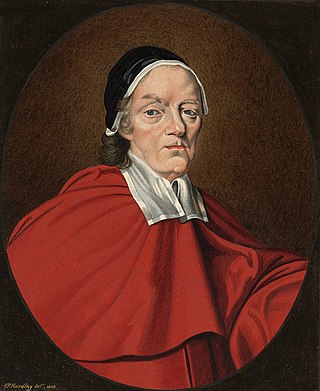
Sir John Maynard KS was an English lawyer and politician, prominent under the reigns of Charles I, the Commonwealth, Charles II, James II and William III.

William Strode was an English poet, Doctor of Divinity and Public Orator of Oxford University, one of the Worthies of Devon of John Prince (d.1723).
Joshua Hoyle was a Professor of Divinity at Trinity College Dublin and Master of University College, Oxford during the Commonwealth of England.
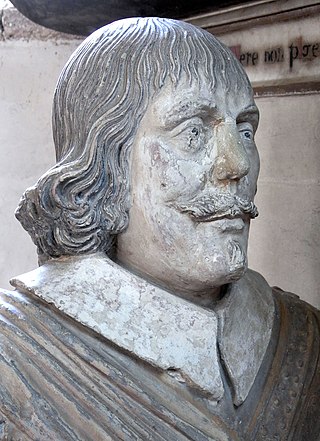
Sir John Northcote, 1st Baronet was an English politician who sat in the House of Commons at various times between 1640 and 1676. He supported the Parliamentarian cause in the English Civil War.
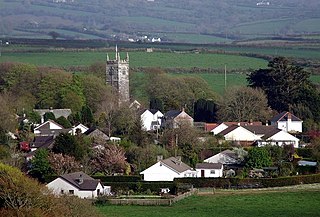
Anthony Nicholl was an English politician, friend and associate of Parliamentary leaders John Pym and John Hampden.

Peter Sainthill of Bradninch in Devon, England, was twice elected a Member of Parliament for Tiverton in Devon, in the Short Parliament 1640 and in the Long Parliament in November 1640. He was a strong supporter of the Royalist side in the Civil War. He was "a man of culture and unaffected simplicity of character, (who) represents the Cavalier cause at its best". He was the subject of a lengthy Puritan verse satire, known as Peter's Banquet or The Cavalier in the Dumps, written circa 1645.

George Hughes (1603–1667) was an English Puritan priest and writer.
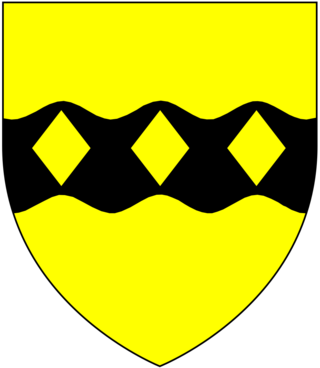
Nicholas Duck, of Heavitree and of nearby Mount Radford in the parish of St Leonards, both next to Exeter in Devonshire, was an English lawyer who served twice as a Member of Parliament for Exeter, in 1624 and 1625. He was one of the Worthies of Devon of the biographer John Prince (1643–1723), whose wife was his great-niece.

Edward Drew (c.1542–1598) of Killerton, Broadclyst and The Grange, Broadhembury, Devon, was a Serjeant-at-Law to Queen Elizabeth I. He served as a Member of Parliament for Lyme Regis in 1584, twice for Exeter in 1586 and 1588 and in 1592 for the City of London. He occupied the honourable position of Recorder of the City of London.

Doctor George Cary (1611–1680), Professor of Sacred Theology, lord of the manor of Clovelly, Devon, was Dean of Exeter between 1663 and 1680. He was also Rector of Clovelly and of Shobrooke in Devon and Chaplain in Ordinary to King Charles II. He was one of the Worthies of Devon of John Prince.

Heanton Satchville was a historic manor in the parish of Petrockstowe, North Devon, England. With origins in the Domesday manor of Hantone, it was first recorded as belonging to the Yeo family in the mid-14th century and was then owned successively by the Rolle, Walpole and Trefusis families. The mansion house was destroyed by fire in 1795. In 1812 Lord Clinton purchased the manor and mansion of nearby Huish, renamed it Heanton Satchville, and made it his seat. The nearly-forgotten house was featured in the 2005 edition of Rosemary Lauder's "Vanished Houses of North Devon". A farmhouse now occupies the former stable block with a large tractor shed where the house once stood. The political power-base of the Rolle family of Heanton Satchville was the pocket borough seat of Callington in Cornwall, acquired in 1601 when Robert Rolle purchased the manor of Callington.

Sir John Hele of Wembury in Devon, serjeant-at-law, was a Member of Parliament for Exeter and was Recorder of Exeter (1592–1605). He was one of Prince's Worthies of Devon (1701). He built at Wembury one of the grandest manor houses ever seen in Devon, called by his near contemporary Risdon : "A magnificent house, equalling, if not exceeding, all other in these western parts, for uniform building; a sightly seat for shew; for receipt spacious; for cost sumptuous; for sight salubrious". It was already a ruin by about 1700, and was finally demolished in 1803. He founded a boys' hospital in Plymouth. His monument and effigy survives in Wembury Church.

Mount Radford is an historic estate in the parish of St Leonards, adjacent to the east side of the City of Exeter in Devon.

Sir John Hill of Kytton in the parish of Holcombe Rogus, and of Hill's Court in the parish of St Sidwell in the City of Exeter, both in Devon, was a Justice of the King's Bench from 1389 to 1408. He sat in Parliament for a number of Devon boroughs between 1360 and 1380.

George Kendall (1610–1663), Doctor of Divinity, of Cofton in Devon, was a theologian.
![]() This article incorporates text from a publication now in the public domain : "Duck, Arthur". Dictionary of National Biography . London: Smith, Elder & Co. 1885–1900.
This article incorporates text from a publication now in the public domain : "Duck, Arthur". Dictionary of National Biography . London: Smith, Elder & Co. 1885–1900.